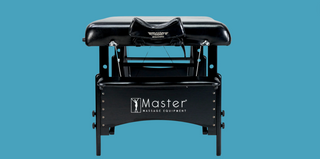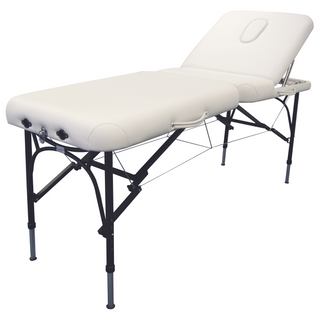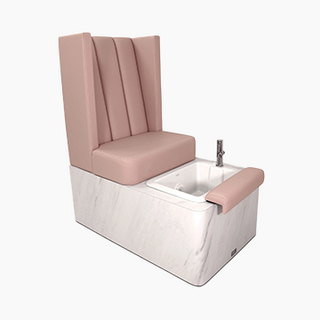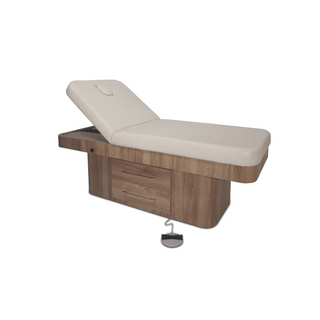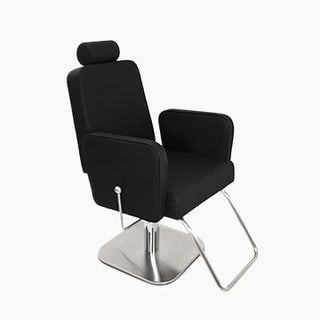Understanding the Differences between Wooden and Metal Frames on Portable Massage Beds
Portable massage tables are indispensable tools for massage therapists, providing mobility and convenience without sacrificing functionality or durability. One critical aspect of these tables is their frame, which supports the entire structure and determines its strength, stability, and longevity. In this guide, we'll delve into the various materials used to construct portable massage table frames and their properties, empowering practitioners to make informed decisions when selecting the ideal table for their practice.
Wooden Frames:
Wooden frames have long been a popular choice for portable massage tables, valued for their natural beauty, stability, and durability. Common types of wood used in massage table frames include:
1. Birch:
Birch is a hardwood known for its strength and resilience, making it an excellent choice for massage table frames. Birch frames offer exceptional stability, ensuring a secure and supportive surface for clients during treatments. Additionally, birch's smooth finish lends a touch of elegance to massage tables, enhancing the overall aesthetic appeal of the equipment.
2. Maple:
Maple is another hardwood favored for its durability and attractive grain patterns. Maple frames provide robust support for massage tables, withstanding the rigors of frequent use and transportation. The dense nature of maple wood ensures that massage tables maintain their structural integrity over time, offering reliable performance in various settings.
3. Pine:
Pine is a softer wood compared to birch and maple but remains a popular choice for massage table frames due to its affordability and lightweight properties. While pine frames may require additional reinforcement to achieve optimal stability, they offer a budget-friendly option for practitioners seeking portability without compromising on quality.
Metal Frames:
In recent years, metal frames have gained popularity in the realm of portable massage tables, offering lightweight yet sturdy alternatives to traditional wooden frames. Common metals used in frame construction include:
1. Aluminum:
Aluminum is prized for its lightweight properties, making it an ideal choice for portable massage tables. Aluminum frames are easy to transport and set up, making them particularly suitable for practitioners who frequently travel or offer mobile massage services. Despite its lightness, aluminum maintains excellent strength and stability, ensuring a reliable platform for therapeutic treatments.
2. Steel:
Steel frames provide unparalleled durability and stability, making them suitable for heavy-duty use in professional massage settings. While steel frames may be heavier than their aluminum counterparts, they offer superior strength and resistance to bending or warping. Steel frames are favored by practitioners who prioritize longevity and reliability in their equipment.
Hybrid Frames:
Some manufacturers combine wood and metal elements to create hybrid frames that leverage the strengths of both materials. These hybrid frames offer a balance of stability, durability, and portability, catering to the diverse needs of massage therapists. By incorporating wood for aesthetic appeal and metal for structural integrity, hybrid frames provide versatile solutions for practitioners seeking the best of both worlds.
Composite Frames:
Innovations in material technology have led to the emergence of composite frames for portable massage tables. These frames utilize synthetic materials such as fiberglass or carbon fiber, offering lightweight yet robust alternatives to traditional wood or metal frames. Composite frames provide excellent strength-to-weight ratios, making them ideal for portable massage tables where minimizing bulk is essential.
Conclusion:
When selecting a portable massage table, the choice of frame material plays a crucial role in determining the table's performance, durability, and overall value. Whether opting for the timeless elegance of wooden frames, the lightweight convenience of aluminum, the rugged durability of steel, or the innovative properties of composite materials, practitioners can find a frame that meets their specific needs and preferences. By understanding the characteristics and properties of different frame materials, massage therapists can make informed decisions to ensure optimal comfort and support for their clients, both in the studio and on the go.

